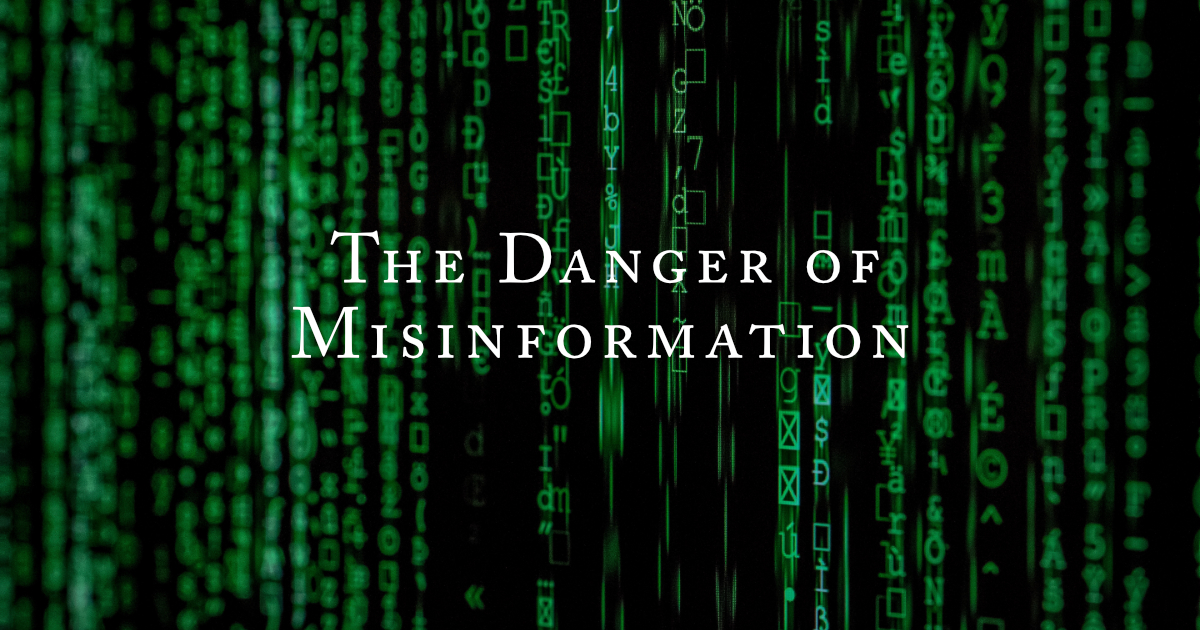“Now when they were going, behold, some of the watch came into the city, and shewed unto the chief priests all the things that were done. And when they were assembled with the elders, and had taken counsel, they gave large money unto the soldiers, Saying, Say ye, His disciples came by night, and stole him away while we slept. And if this come to the governor’s ears, we will persuade him, and secure you. So they took the money, and did as they were taught: and this saying is commonly reported among the Jews until this day” (Mat 28:11-15).
The Roman guards accepted a bribe, followed the priests’ counsel and perpetuated a lie regarding the resurrection. Christ had risen, but word spread that His body merely had been stolen. It influenced the naïve to the point that “it was commonly reported among the Jews.” This example from the inspired narrative reveals the danger of misinformation.
Today, dishonest politicians use this phenomenon to their advantage, and the false information backing smear campaigns too often wins the day. The power of propaganda, regardless of veracity, influences.
As believers, we must be careful to “Prove [test] all things; hold fast that which is good” (1 Thess. 5:21). Today, the Christ Life or Spirit-filled life teaching is sometimes labelled as sinless perfectionism. I address this false accusation in the article, Sinless Perfection vs. Sinless Provision. Some have charged the teaching as promoting a second blessing, and I have addressed this misnomer in Second Blessing or Second Rest. Others insist that an inherent error of Christ Life teaching is a sort of warped view of surrender. This charge is met in Let Go and Let God. Yet others frame an associated term, “Keswick” (i.e., Keswick theology/sanctification by faith), as a bad word, but this misinformation campaign is addressed in a series of articles, Keswick: A Good Word or a Bad One? (Part 1 • Part 2 • Part 3).
It is fair to disagree, but to make inaccurate charges is unethical. While speakers are responsible for speaking accurately, hearers are accountable for hearing accurately. Sadly, this important responsibility is often overlooked. Besides careful hearing, an audience must also assume the responsibility to investigate, to study, rather than simply passing on a secondhand view that is “commonly reported.” Some may object to this and insist that supposed self-evident errors need no further examination, saying, “Where there’s smoke, there’s fire.” Though judgments passed on certain issues and events may indeed seem likely and sometimes prove true, it’s not always the case. Recall, a body being stolen seems likely—much more likely than something like a resurrection. And if we excuse ourselves from careful hearing and focused study, then commonly reported lies like the soldiers’ fabrication easily become viable.
Today, there are entire regions where this misinformation about the Spirit-filled life has been propagated, and the lies have spread like a prairie fire. The damage done is also like that of a prairie fire, scorching an area and burning up every hint of life. Some dear men in the ministry are in desperate need of the power of the Holy Spirit but have been misled and mistakenly avoid the very truth they so vitally need. Spiritually, they have been burned up, so to speak, and the scorched field in which they labor bears not the expected abundance of fruit. This is the tragic danger of misinformation.

John Van Gelderen
Post Author












Thank you for this helpful article. This reminds me of a phrase I heard a couple of years ago and recently shared with a friend. “We each may be entitled to our own opinions, but we’re not entitled to our own set of facts.”
Truly well said!
Thank you for the article. It is a sad but true state of affairs in our world today that listening skills seem to be dwindling to none. 30 second sound bites, empty “news” casts, and regurgitated “facts” seem to be the norm. That is why I so often stress to anyone who will listen, read and study God’s precious word, ask questions, and listen to your pastor. (and of course, pray for His leading!) But everyone seems too busy to study, to quick to reply rather than listen, and too willing to miss church… John, your faithful ministry is a… Read more »
Thank you for this important article. May I just bring it to another level for a moment. Even if we know all the facts we can still go astray. Moses sent out the 12 spies. All of them had the same information and knew the same facts. 10 of them didn’t want to go into the Promised Land, only Joshua and Chaleb wanted to go in. Hebrews 3v19: “So we see that it was because of their unbelief that they were unable to enter”. Hebrews 3:12: “See to it, brothers, that none of you has a wicked heart of unbelief… Read more »